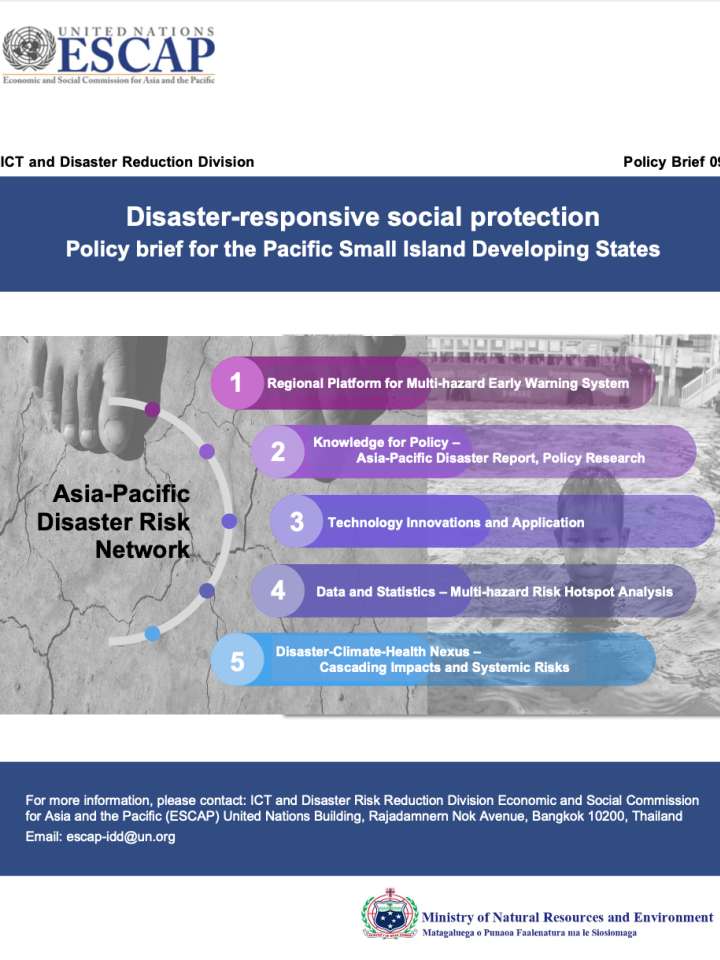Disaster-responsive social protection: Policy brief for the Pacific Small Island Developing States
This policy brief is the first of a series comprising ESCAP’s inputs to the implementation of the Strengthening Resilience of Pacific Islands through Universal Social Protection Project. The aim of this series is to inform ongoing efforts in the Pacific Small Island Developing States (SIDS) to review and design social protection systems. The focus of this issue is on Samoa, and introduces the key issues that need to be considered across the five strategic interventions of the Programme. Designed and implemented properly, disaster-responsive social protection has tremendous potential to help address the most common causes of poverty in the Pacific SIDS.
The brief notes that effective design of disaster-responsive social protection programmes requires using data and evidence to design targeted parameters that can accommodate and respond to dynamic changes in patterns of vulnerability and exposure to hazards, as well as to the double burden imposed by disasters on people who are vulnerable. This brief discusses how predictable and adequate finance is key to the credibility and success of DRSP, which may be further bolstered by innovative measures, such as strengthening linkages with contingency reserves and insurance, and aligning social protection with the priorities of climate finance. Successful DRSP initiatives comprise whole-of-society undertakings that requires collaboration across various ministries, between development and humanitarian actors, and between national and village authorities.
Explore further
